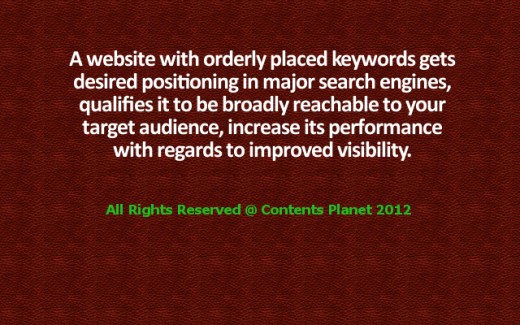5 Signs You Are Not Good At SEO Content Writing

If you have ever written content for SEO or search engine optimization, you may know about SEO content writing. However, the moot point of this narration is not whether you know about SEO writing, but to figure out some key signs that most SEO writers display while writing content for search engine optimization.
1. Not Researching Enough
Gone are those days when writing content for the purpose of search engine optimization in a bid to improve the ranking of a website was favored blindly by SEO experts. With the advent of Google’s Matt Cutts and many strict-to-follow guidelines of search engines, the likelihood of penalization of a website increases in the event of infringing the guidelines.
For instance, now no website owner can ever dare to plagiarize textual idea of anyone given the status-quo that doing so would invite penalization for an infinite period by search engine.
Coming to the point – not researching enough in order to write a good content is one of the worst signs of a SEO writer. As a matter of fact, you have to research a lot (if you are to start to write something absolutely new) using the Internet resource and excavate related information from different reliable sources on the Internet until you have in your possession the saturated idea of one single write-up.
The effectivity of writing best content lies fully in the essence of researching sufficiently useful information from many quality sources on the Internet.
Trust my words on it.
2. Not Knowing SEO Enough
What would you tell a goldsmith who doesn't know how to forge metal into pretty, serviceable utensils? Bad? Clumsy? Awkward?
That’s what with a writer not knowing search engine optimization well enough before writing content on it.
See, my viewpoint on SEO is somewhat different and I am not going to share the rumor that it is going to be dead anytime soon. If a writer doesn’t know anything about SEO, then whatever he writers, he won’t be able to maximize the utility of his write-up in the absence of required SEO-knowledge.
It’s like playing a cricket without any prior experience in bowling, fielding or batting.
3. Not Knowing Keywords Enough
A keyword or key phrase is one of the most noteworthy parts of search engine optimization, whereby the experts have to work hard on analyzing the difference between the keywords with high competition on search engines and the keywords with low competition on search engines. Between the ‘differential analysis’ of both the keywords, the experts eventually filter or handpick or shortlist the most pertinent set of keywords related to the core business attitude of your company.
Finally, the selected set of keywords is given to SEO writers with certain set of instructions with regards to their placement in content. Therefore, as a writer for search engine optimization, you must bear in mind that the knowledge of SEO, especially on the front of keywords, is very essential to have.
4. Not Knowing Keyword-Placement
As mentioned in the above paragraph, a keyword is one of the most substantial parts of SEO technique with regards to improving the ranking of a website on search engines (Google, Yahoo, Bing…you name it). As a writer, you must essentially be aware of the keyword-placement technique in the content you’d write.
Technically speaking, the keyword-placement is one of the most important aspects of SEO content writing, whereby a writer has to place the selected keywords (on the ground of their categorization like primary and secondary keywords) in content in a careful way that the keyword placement doesn’t infringe one of the guidelines of search engines with regards to “over-stuffing keywords”.
To say the least, you must place relevant keywords in content in relevant order. You should never stuff your content with the given set of keywords, even though they are too important to ignore.
For instance, a primary keyword should be placed one or two times in the first and last paragraph of your content, and a secondary keyword be placed two times if the total length of your write up is of 500 words.

5. Not Knowing Who You Write For
So what you have to think of search engine optimization while writing? Being totally SEO-centric and driven by the obsession of how to appease Google/Bing will not help you rank up your website. On the contrary, this is one of the worst signs that you are not good at SEO content writing. Remember, whether you write in accordance with SEO guidelines, you must have to know who you write for. To state otherwise, you have to understand your readers or target customers.
In this context, I would like to advise that you should be focused on particular group of people solely related to core objective of your business/write-up. You can’t please everyone with your write up.
At Last:
SEO content writing is one of the best tactics to improve ranking of a website all over the web. A writer who is experienced in this field of writing can better understand the requirement of his/her client. However, what must be known in relation with writing content for SEO is to ensure how much you know about this.
All the best!!!








